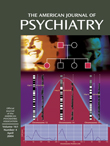Emergency Psychiatry
Psychiatry is a flourishing discipline, with new and complex advances in hospital management, scientific research, and paradigms of patient care. Michael Allen has edited a book that provides a useful and quick read for any resident, established physician, or administrator involved in psychiatry. This book offers extremely well-researched arguments for the management of patients in the emergency psychiatry setting and encourages further investigation in the field.
Emergency psychiatry is a burgeoning subspecialty throughout hospitals in the United States. This book is divided into five broad chapters that independently review challenges facing the practice of psychiatry today. Far from being a flowchart manual addressing every possible psychiatric emergency, this condensed guide provides insights into hospital dynamics and physician-patient interactions. The first chapter discusses the different ways that psychiatry emergency services may be organized. The emphasis is clearly on the need for psychiatric staff in the our community emergency departments. The authors supply an informative discussion of the models for delivery of services in emergency psychiatry, how they are organized, and even the kind of impact that the modern practice of medicine (read managed care) might have on the delivery of such services. The second chapter usefully overviews current modes of assessment of patients in psychiatric emergency services at the medical, psychiatric, and cognitive levels. Psychiatry, as with all things that evolve, has developed complex relationships with other disciplines and has interfaced with traditionally distinct spheres such as neurology, internal medicine, and nursing. The authors provide a keen analysis of the necessity of patient care based on these multiple perspectives in the emergency setting.
The third and fourth chapters address a common challenge in hospitals and psychiatry clinics: the assessment, management, and treatment of the agitated patient and the suicidal patient. The review of the literature is thorough and especially instructive, such as in a discussion of risk factors for suicidal behavior. Although the book hardly offers textbook recipes to be implemented at the bedside, the final chapter describes in detail the often regarded but little discussed topic of extending care beyond mere supportive treatment to proactive psychosocial approaches.
Although Emergency Psychiatry is not a specific source of scientific references or a handbook for patient care, it provides a compelling review of current methods and directions in emergency psychiatry. For the established clinician, the psychiatrist in training, and the hospital administrator, it is an indispensable read.



